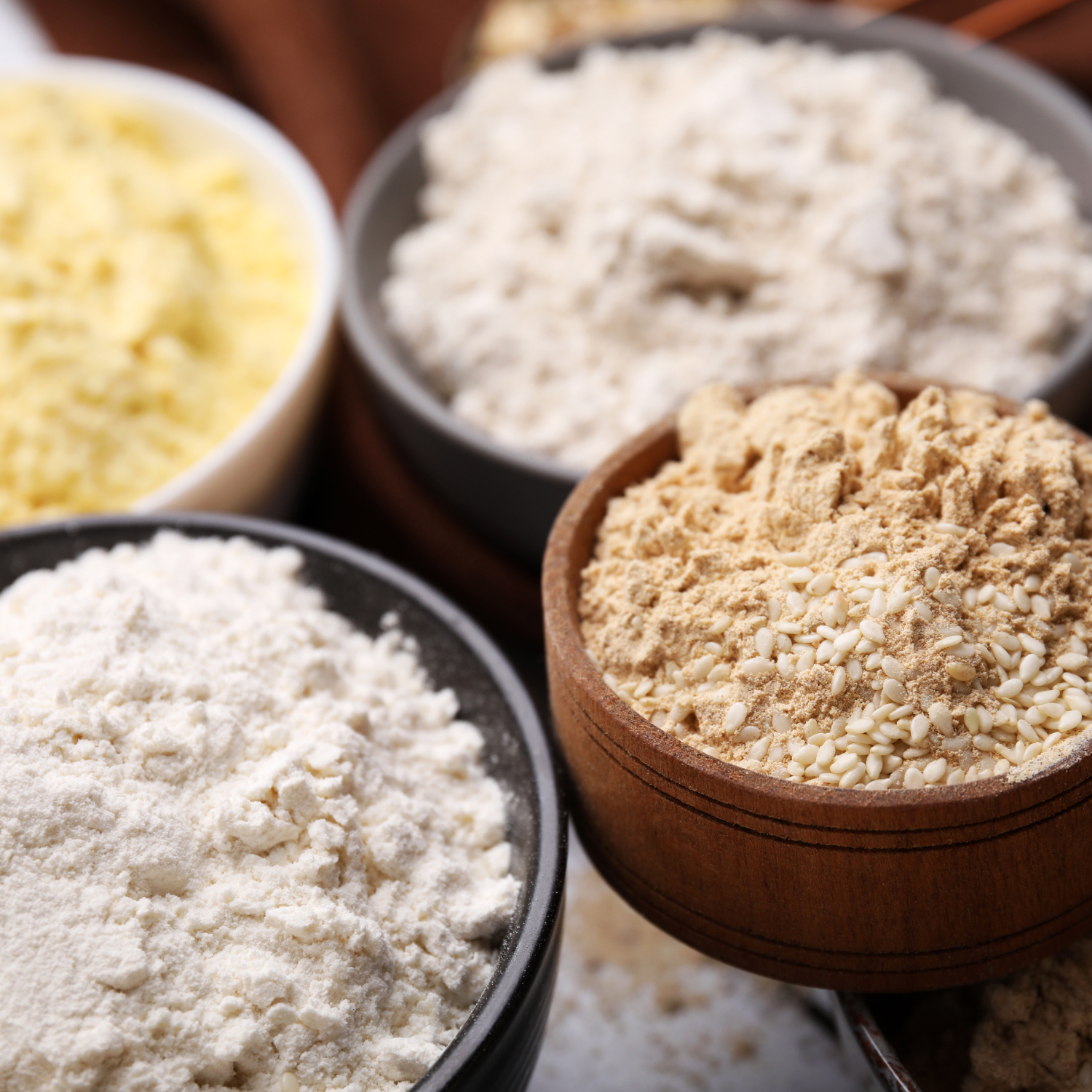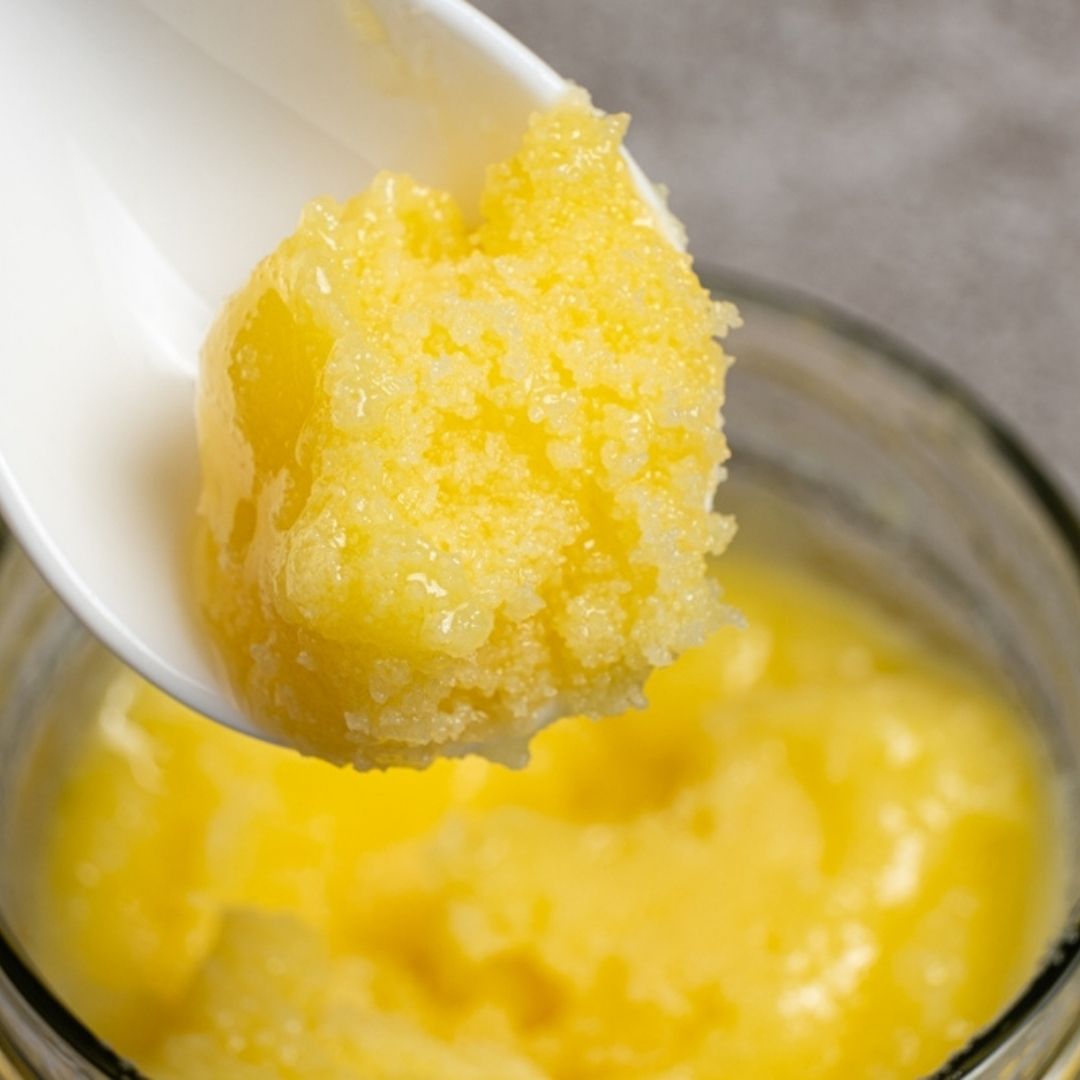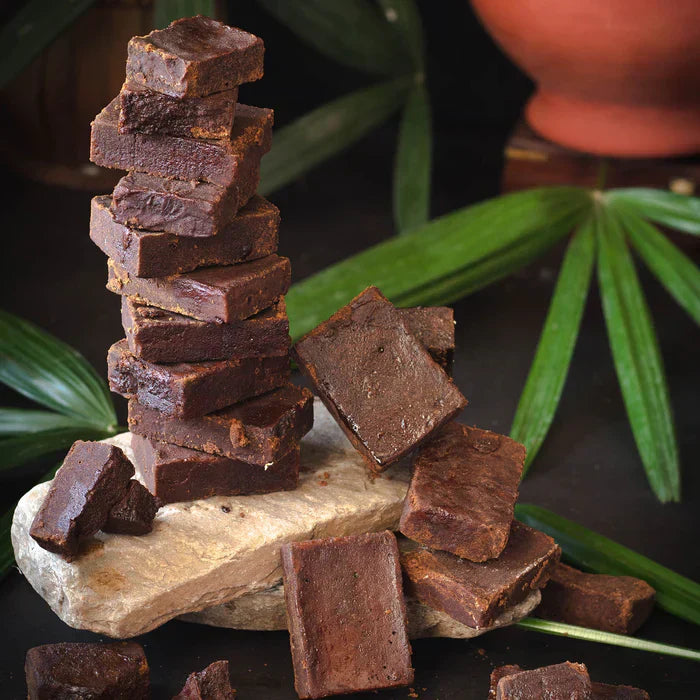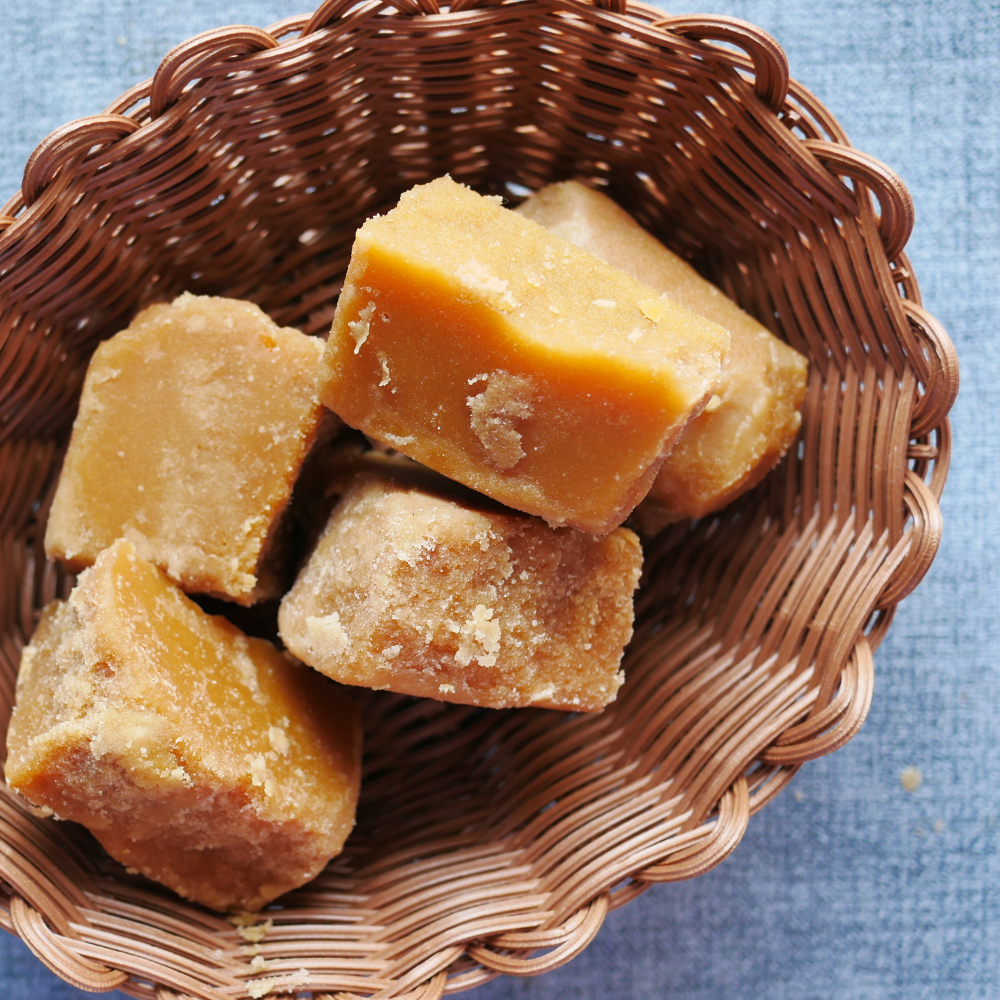There are several advantages to using organic wheat flour, including better nutrition and environmental sustainability. To fully appreciate the benefits of organic farming, one must be aware of its subtleties. One can understand the substantial difference that organic choices make by exploring the process of farming organic wheat and contrasting it with conventional techniques. Using organic whole wheat flour promotes a cleaner, greener earth in addition to improving health. Let's examine the many benefits that organic wheat flour offers.
An Understanding of the Production of Organic Wheat Flour
Wheat grown without the use of hazardous chemicals or synthetic pesticides is the source of organic wheat flour. Crop rotation is the first step in the production process for organic farmers in order to preserve soil health and biodiversity. Unlike conventional flour, which is heavily processed and loses vital nutrients, organic whole wheat flour is made by milling the wheat while keeping the germ and bran. This focus on natural ingredients produces a healthy product that is good for the environment as well as physical health.

How Organic Wheat Is Grown
Wheat that is certified organic is grown using strict organic farming practices that don't use artificial fertilizers or pesticides. Crop rotation is one of the environmentally beneficial techniques used by organic farmers to preserve biodiversity and soil health. Organic wheat flour maintains its nutritional value without the use of dangerous chemicals, making it a healthier option to traditional wheat manufacturing. By guaranteeing the purity of organic grains, this procedure enhances environmental sustainability and promotes improved health. The utilization of natural resources for crop cultivation is prioritized in organic farming practices, improving both the planet's and consumers' general health.
Let's see what more benefits this flour has:
The Benefits of Organic Wheat Flour for Nutrition

Organic wheat flour offers a multitude of nutritional advantages due to its high content of vital vitamins and minerals. Its high fiber content promotes general wellbeing and digestive health. By using organic farming practices, flour is produced without the use of artificial pesticides, maintaining the grain's inherent healthiness. Selecting organic wheat flour adds essential nutrients to your diet and supports a sustainable food system that puts environmental sustainability and public health first.
Packed with Vital Minerals and Vitamins
When it comes to offering an abundance of vital vitamins and minerals that are critical for general health, organic wheat flour shines. Rich in iron, magnesium, and B vitamins, it improves the nutritional profile of your diet. These essential components are important for blood circulation, bone health, and metabolism. Incorporating organic wheat flour into your meals is a great way to support your body's needs while also enjoying its unique flavor and leading a healthy lifestyle.
Fiber's Function in Digestive Health

The fiber present in organic wheat flour is essential for maintaining digestive health. Constipation is avoided, regular bowel motions are maintained, and general gut health is enhanced. Fiber helps the growth of good bacteria in the stomach by functioning as a prebiotic, which improves digestion and nutritional absorption. Furthermore, fiber promotes a feeling of fullness and helps control blood sugar levels, both of which are beneficial for managing weight. Including high-fiber organic wheat flour in your diet has major benefits for your digestive system.
Including Organic Wheat Flour in Your Diet Has Health Benefits

Numerous health advantages of organic wheat flour might greatly enhance your general wellbeing. The beneficial effect that organic wheat flour has on blood sugar levels is one of its main benefits. Because organic wheat flour contains magnesium, which lowers insulin resistance and enhances insulin sensitivity, managing diabetes is made simpler. Furthermore, niacin, a B vitamin that not only improves mental health but also shields your brain cells from stress and potential injury, is abundant in organic wheat flour. Making the switch to organic wheat flour can enhance mental wellness and lead to better health outcomes.
Supporting Efforts in Weight Management

Including organic wheat flour in your diet can be a game-changer if you're trying to control your weight. Due to its high dietary fiber content, organic wheat flour helps with weight management by increasing feelings of fullness and lowering calorie consumption. Furthermore, organic wheat flour's low glycemic index guarantees that it has no effect on blood sugar levels, which makes it a great option for people with diabetes or those trying to keep their blood sugar levels steady. Fiber and steady blood sugar levels work together to reduce the risk of abrupt energy surges and crashes, which improves control over food cravings and emotional eating. You may support your weight control efforts and reap the many health benefits of using organic wheat flour by choosing it.
Reduced Chances of Chronic Illnesses

Including organic wheat flour in your diet can help reduce your chance of developing chronic illnesses. Antioxidants, vitamins, and minerals found in abundance in organic wheat flour are vital in mitigating oxidative stress and inflammation within the body. You may strengthen your immune system and shield your body from chronic illnesses like diabetes, heart disease, and some types of cancer by routinely consuming organic wheat flour. Organic wheat flour's lack of synthetic pesticides and dangerous chemicals increases its health advantages and guarantees that you are ingesting a product free of potentially dangerous materials. You are proactively preserving better general health and lowering the risks of chronic diseases by placing a high priority on your health and selecting organic wheat flour.
Benefits of Choosing Organic Wheat for the Environment
Choosing organic wheat has a major positive impact on the environment. Organic agricultural practices preserve soil health and increase biodiversity by avoiding synthetic fertilizers and pesticides. In contrast to conventional farming methods that mainly rely on toxic chemicals, crop rotation and the use of natural resources to fight pests and diseases are two ways that organic agriculture promotes a sustainable ecosystem. Selecting organic wheat guarantees the preservation of vital resources for future generations while also promoting the health of the earth.
Decreased Usage of Chemical Fertilizers and Pesticides
Reduced use of chemical fertilizers and pesticides, which are a feature of organic farming practices, is advantageous for organic wheat flour. Compared to conventional farming, this method uses less toxic chemicals, which improves soil health and biodiversity. By selecting organic wheat flour, you promote environmentally friendly, sustainable farming methods in addition to putting your health first. Adopting items that are produced using less artificial fertilizers and pesticides contributes to a cleaner and healthier food chain.
Encouraging Soil Health and Biodiversity

By avoiding industrial pesticides and fertilizers, organic wheat cultivation improves soil health and biodiversity. Crop rotation is one of the sustainable strategies that organic farmers highlight since it naturally maintains soil fertility. Organic farming practices, which avoid using toxic chemicals, create a rich ecosystem in the soil that supports populations of insects and microorganisms that are necessary to the health of the soil. This method adds to the long-term viability of agricultural fields while also being good for the environment.
Using Organic Wheat Flour in Cooking
When it comes to cooking, organic wheat flour is quite adaptable and may be used for many different types of dishes. There are various varieties of flour available, such as pastry flour, bread flour, and all-purpose flour, each with special qualities and applications. The most popular kind of flour is all-purpose, which works well in a variety of recipes, such as cakes, cookies, bread, and pancakes. The higher protein level of bread flour makes it perfect for creating chewy homemade bread. With its lower protein content, pastry flour is ideal for making delicate pastries and pie crusts.
A basic component in baking, organic wheat flour can be used to make a variety of delectable and healthful desserts.
Cooking and Baking Versatility: From Breads to Pastries
Organic wheat flour is unparalleled in its versatility for baking and cooking applications. Organic whole wheat flour is especially well-liked for its high fiber content and nutty flavor. It can be used to make substantial and nourishing loaves in a range of bread recipes, such as sourdough and whole wheat bread. Because bread flour has more protein than other flours, it works well for making chewy, crusty artisan loaves.
Conversely, pastry flour produces a soft and flaky texture that makes it perfect for delicate pastries, pie crusts, and biscuits. Organic wheat flour can be used to make a variety of baked items that are not only delicious but also nutrient-dense, such as fluffy muffins and savory scones. Accept the adaptability of organic wheat flour in your cooking and discover all the creative possibilities it presents for your baked goods.
Advice on How to Replace Organic Wheat Flour in Recipes
There are a few things to consider when using organic wheat flour in place of normal flour in your recipes. In most recipes, whole wheat flour—a kind of organic wheat flour—can be used directly in place of all-purpose flour. It's crucial to remember that whole wheat flour has a stronger flavor and denser texture, which could have an impact on how your baked items turn out. You can try substituting some of the whole wheat flour with cake flour, which has less protein and produces softer, more delicate cakes, to get lighter, fluffier results. You may help your baked items have the texture and flavor you want by experimenting with different ratios and mixing organic wheat flour with other types of flour.
Feel free to use your imagination and modify recipes to your liking while still enjoying the health advantages of organic wheat flour.
Conclusion
Numerous advantages come with using organic wheat flour, including better nutrition and environmental sustainability. Its cultivation benefits human health as well as the health of our world. Choosing organic wheat flour not only adds vital vitamins and minerals to your diet, but it also helps to reduce the use of toxic pesticides and preserve biodiversity. Accept the adaptability of organic wheat flour in your baking and cooking projects and take use of the extra health advantages it offers. By adding organic wheat flour to your everyday meals, you can make a conscientious decision that benefits both the environment and your health.
Frequently Asked Questions
What Taste Differences There Are Between Regular and Organic Wheat Flour?
The main reason organic wheat flour tastes different from conventional flour is that it contains bran and germ, which are left in during the milling process. Because of this, the flavor of organic whole wheat flour is nuttier and marginally stronger than that of conventional wheat flour. For people who like their baked items to have a richer, more nuanced flavor, organic whole wheat flour is a popular option because of the slight but obvious taste difference.
Is It Possible to Use Organic Wheat Flour on a Gluten-Free Diet?
No, gluten-free diets cannot include organic wheat flour. It contains gluten, a protein present in grains like rye, wheat, and barley that can cause negative reactions in those who have celiac disease or gluten sensitivity. Choosing naturally gluten-free alternative flours like rice flour, almond flour, or coconut flour is crucial for people on a gluten-free diet.







